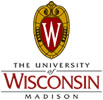New Beowulf Cluster
A Beowulf cluster is now available to SSCC members wishing to run parallelized code written in C/C++ or Fortran. The cluster is made up of 9 dual-CPU 2.1Ghz servers. Documentation is available at SSCC's web site. If you have parallelized C/C++ or Fortran programs you'd like to run on this cluster, please contact Ryan Horrisberger.
Jim Walker, Professor in Economics, will be offering a workshop introducing parallel computing using MPI sometime in April. In the workshop, Jim will explain MPI, describe why MPI may be of interest to SSCC members, present some examples, and relate MPI to parallel processing on Condor using PVM. Ryan Horrisberger will also be on hand to show how to run and monitor jobs. Please contact Nancy McDermott if you are interested in attending and include times convenient for you.
Atlas.ti Software for Qualitative Analysis
Atlas.ti is software similar to NVivo for the qualitative analysis of large bodies of textual, graphical, audio and video data. This software is now available on Winstat1, Winstat2, and Winstat3. To invoke Atlas.ti,choose Programs, Scientific Software, Atlas.ti from the Start menu. SSCC staff only provide minimal support for this software. Support resources, including the manual, are available at Atlas.ti's web site.
Managing Trash and Spam Folders
A recent system-wide check shows that spam and trash folders occupy almost 25 gigabytes of SSCC disk space! Please make sure and delete messages from these folders on a regular basis. Most mailers can be configured to automatically empty trash when you exit the program:
- In Thunderbird, click Tools, Account Settings, Server Settings, and check "Empty trash on Exit."
- Outlook Express cannot be set to store deleted messages in a trash folder, so Outlook Express users only need to worry about deleting their spam.
- In Eudora, click Tools, Options, choose the Miscellaneous category on the left, and check "Empty Trash When Exiting."
- Beginning Monday, SquirrelMail will be configured to empty your trash folder automatically every time you log in. If you use a different email program on a regular basis but Squirrel occasionally and do NOT want Squirrel to empty your trash, set Squirrel to use a different trash folder than your regular email program. You can do this by clicking on Options, Folder Preferences.
New Publications
New SSCC Publications include:
- A Simple Procedure for Producing Publication-Quality Graphs using SAS
- Connecting to SSCC Linux Computers using X11 in Mac OS X
- Using the SSCC's High Performance Computing Cluster
- Managing Disk Space in Windows
- Managing Disk Space in Linux
- Using Compressed Data in SAS
Note that Stata can very easily use compressed data as well--type findit gsave to learn how.
New Archival Service for SSCC Members
This article was in last month's SSCC News, but worth repeating: One good way to conserve disk space is to archive files you are not currently using but don't want to delete. We have CD/DVD writers in the 2470 and 4218 computer labs for just this purpose. To make things even easier for you, we are happy to announce a new archival service where we will archive files for you. Here's how it works:
- Go to the Windows Y: drive, open the folder called "archive", and create a new folder using your user name.
- Copy the files you want archived to this folder.
- Then go to our Request Archiving web page and fill out a very short request form. It's that simple!
SSCC Spring Training
SSCC's spring training is well underway. Remaining offerings for the semester include Running Large Statistical Jobs using Condor, How to Tune Up Your PC, and A Hands-on Introduction to NVivo. Also, we're offering individual appointments to discuss switching from Eudora to more reliable email programs like Thunderbird and Outlook Express. For details and to register for SSCC training classes, please visit our training web page.
NVivo 7 Workshop Beginning March 24
The Wisconsin Center for Educational Research will be hosting a full day demonstration and a full day hands-on introduction to QSR's NVivo 7 beginning March 24th, led by QSR's founders, Tom and Lyn Richards. With an entirely new interface and many new functions, NVivo 7 is the upgrade for both NUD*IST (N5 or N6) and NVivo (1 or 2). Visit http://tqm.wceruw.org/NVivo7conf.html for more information and to register. There is a registration fee.
Tip: Producing Non-Printable PDF Files
Here's a useful tip for instructors that we learned about from UW's Computer-Aided Engineering Center (CAE). With Adobe Acrobat, you can create non-printable PDF files. When students print individual copies of course materials, it turns the SSCC into a free (to the students) copy shop, and a very inefficient one at that. Making course materials available at someplace like Bob's Copy Shop and then posting non-printable PDF files on the web keeps the convenience of a course web page but at significant savings to the department that pays for printing. Instructions for creating non-printable PDF's are available at CAE's web site.

